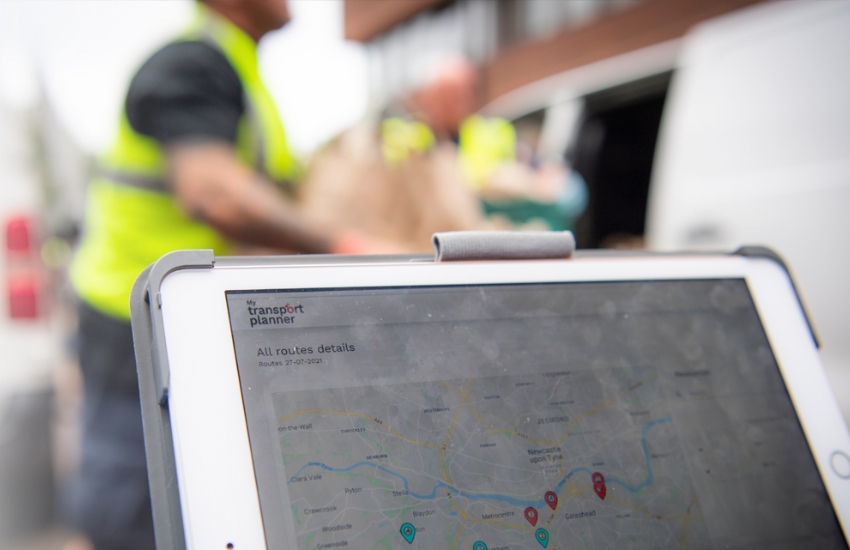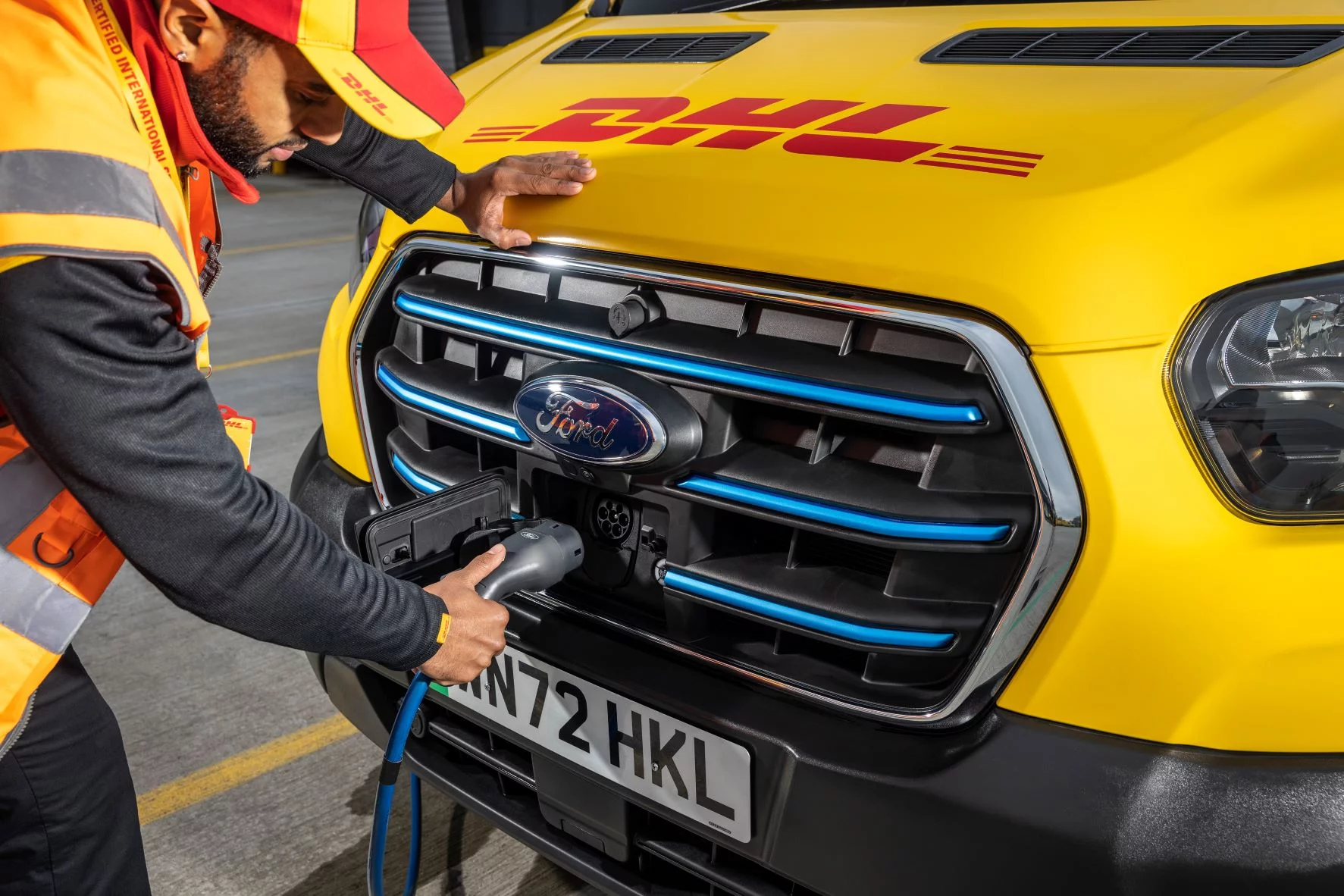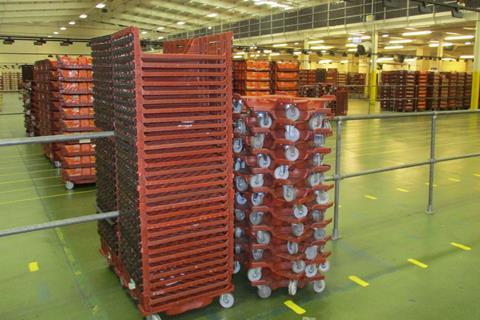Paul Empson, GM of bakery and food equipment company Bakers Basco, shares his reflections and predictions for the year ahead – and why the environmental fight against plastic waste must be a top priority.
From rising inflation to soaring energy and fuel prices, 2022 has been challenging for almost every business operating in the food and logistics industry; the crunch being felt by all parties across the supply chain – from source to shelf to shoppers.
Supply chain issues continue to dominate the news agenda – the latest pointing to a shortage of eggs in the run up to Christmas as the poultry industry grapples with spiralling costs and a bout of bird flu. If there’s one word to sum up the biggest challenge of 2022, it’s cost. It’s an issue faced by all corners of the food industry, including the baking sector.
In 2022, the baking industry has faced formidable challenges related to the supply chain, workforce development, rising inflation and costs of flour and energy – all compounded by the conflict in Ukraine and the continued fallout from the Covid-19 pandemic. Has the industry overcome it? Not fully – but yes, in the sense that they have continued and continue to operate and provide daily bread to homes across the country.
But as with everything, it comes at a cost – a cost to the bakers, the supermarkets and the suppliers working behind the scenes to manage efficient logistics to transport the goods.
Food logistics industry predictions
At the beginning of the year, I made three predictions for the food logistics industry: that plastic prices would plateau, that more HGV drivers would enter the pool; and that the government would clamp down on illegal recycling as part of its commitment to build towards a greener future, and reach net zero by 2050.
Encouragingly, the material costs and availability of virgin material has improved slightly during the latter stages of the year, which has eased the plastic supply chain to a degree. Uncertainty has relaxed to some extent which has been a great relief for those producing and procuring plastic trays. On the HGV driver front, various actions have been taken to try and address the shortage and its impact on supply chains – with recent reports stating that the number of HGV drivers is stabilising. Two out of three ain’t bad, right?
Unfortunately, where we continue to fall short is in the fight against plastic waste – and this must be a top priority now, in 2023 and beyond. The environment is an issue that continues to be front of everybody’s mind and it’s no different for us at Bakers Basco. Plastic waste must be reduced and we must continue investigations to maintain a healthy circular economy.
We’ve long talked about the benefits of a circular economy, promoting environmental policies to reuse and recycle, and ensuring that every product is as sustainable as possible. Plastic returnable transit packaging (RTP) like our Omega bread basket was designed from virgin plastic as a cost-effective and environmentally-friendly solution for bakeries to deliver bread and other baked goods across the UK. It’s sturdy, reusable and it’s recycled once it reaches its 12-year life span – contributing in a positive way to the circular economy.
Impact of theft
But there’s a darker side of the plastics industry being overlooked that is preventing any progress towards a healthier circular economy – and officials are still turning a blind eye to it. The Government wants all plastic packaging to be reusable by 2025. For us and many businesses like ours, we’ve already got a reusable plastic packaging solution that we’ve been using for many years. We’re trying to contribute positively to the circular economy. Yet it’s not 100% working and that’s because people are stealing the equipment and illegally grinding up the plastic, taking it out of the circular economy. What’s more, after this process has taken place, it’s going back to legal companies in the UK – whether they know it or not.
As a business, Bakers Basco has continued to go from strength to strength on our quest to repatriate as much equipment as possible – making great strides in getting the message to businesses outside of the baking, food, logistics and recycling industries. For example, we’ve engaged with the Association of Festival Organisers (AFO) which has enabled us to secure quantities of equipment from Glastonbury (a new source for us) and connect with key individuals who have the power to support change.
We will continue to broaden our horizons in 2023 in terms of which channels we investigate, continuing this expansion to connect with areas and sectors that we previously have not. And we intend on opening up further areas in different settings to repatriate our equipment, all in line with our efforts to hammer home the message that bread baskets belong to a supply chain and that they belong to Bakers Basco and its membership.
Help save the planet
The recent COP27 has served as a reminder to us all that climate change needs to remain on the global agenda. Consumers are becoming more and more aware about how the actions they take today can build towards a better future for the planet. We ourselves have seen an increase in members of the public having greater awareness of the negative environmental impact caused by equipment ending up outside the supply chain – and informing our investigations team of misplaced equipment found where it shouldn’t be.
It shows that the message is getting through and reaching a wider audience – but we mustn’t forget that it’s an imperative for businesses and governments too to put plastic waste and waste crime back on the agenda. Cracking down on rogue carriers of waste is an area that’s very close to Bakers Basco’s heart; this is absolutely the source in which illegal recyclers are getting away with unlawfully collecting our plastic bread baskets and dollies, then selling them on to rogue recyclers and gaining huge profits – at the expense of others. We need more enforcement in the UK to catch the rogue carriers who are dealing with waste – or perceived waste – in an unlawful manner.
With the right enforcement, it will not only help curb theft and support those businesses and industries who suffer as a result of stolen or missing equipment, but it could also help to save the planet. And that’s the only trend that we really need to see happen in 2023.











